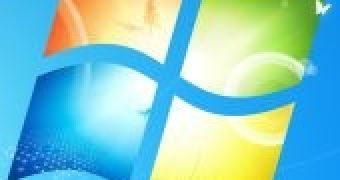While Microsoft has yet to provide any statistics related to the adoption of Windows 7 by enterprise customers, one company dealing with automated application compatibility testing and remediation, indicates that uptake is strong. According to ChangeBASE, makers of AOK, no less than 80% of its customers plan to upgrade to the latest iteration of the Windows client in the first year after the OS was released. At the same time, more than half of organizations looking to migrate to Windows 7, indicate that they will embrace the 64-bit (x64) flavor of the operating system, revealed ChangeBASE’s Greg Lambert.
“This was a bit of a surprise for us - but, given the nature of the PC hardware and software ecosystem today, 64-bit OS migrations should be soon become the norm,” Lambert said, adding, that the number of enterprises planning to upgrade to Windows 7 has increased since the platform’s GA. “Looking back on the research ChangeBASE conducted with senior IT decision-makers ahead of the Windows 7 launch in October 2009, the results showed that more than 65 per cent of organizations hoped to migrate to Windows 7 within 12 months.”
One major victory for Microsoft in terms of Windows 7 uptake was the fact that Intel upgraded in excess of 100,000 seats to the successor of Windows Vista. Back in 2007, Intel was perhaps one of the most representative enterprises that ignored Vista altogether, and decided to stick with Windows XP. Among the reasons enumerated by Lambert to explain the success of Windows 7 with enterprise customers, are also the arguments Intel used to justify the need to upgrade.
“We are seeing two big drivers behind the uptake-levels of Windows 7; The first is the ease and speed with which even large-scale migrations can be rolled-out. The second is ability to future proof the management of the application estate once the migration has been completed. Both of these factors have certainly been key in leading to the higher than expected adoption figures in the first six months,” Lambert said.
Apparently, Windows 7 did manage to break the mold for business customers, that rarely upgrade to an RTM release of Windows, and wait for the first Service Pack to be delivered instead. But the problem-free Windows 7 has made SP1 virtually irrelevant, although some comprehensive benefits will be added with the service pack, but mostly for Windows Server 2008 R2, and with the strongest impact in terms of the virtualization stack.
“We have also seen that Windows 7 is driving the wide-scale take-up of 64-bit computing. Many of our customers are worried that they will have application compatibility problems with an upgrade to a 64-bit environment. However after analysing their application estate they realise these issues can be automatically addressed which means they can opt for the more powerful 64-bit option. This is a win / win situation for both the enterprise and Microsoft,” Lambert added.
Microsoft Windows 7 90-Day Eval VHD is available for download here.
Another Windows 7 RTM Enterprise 90-Day Evaluation is available for download here.
Windows 7 RTM Enterprise 100-Screenshot Gallery

 14 DAY TRIAL //
14 DAY TRIAL //